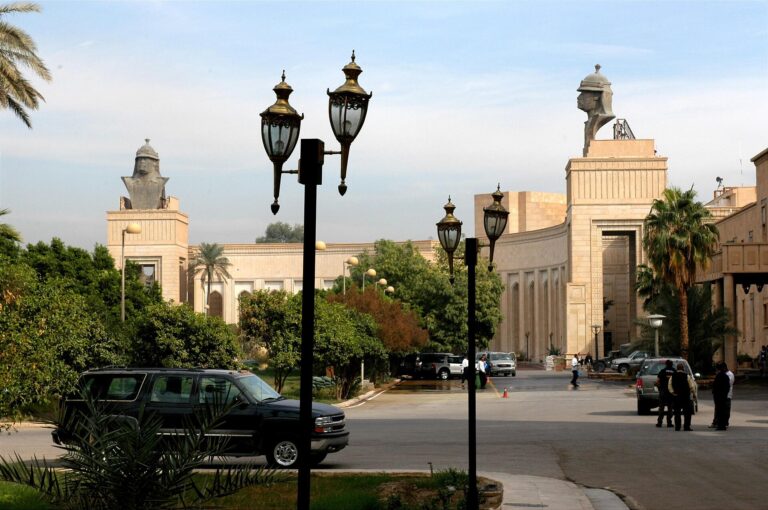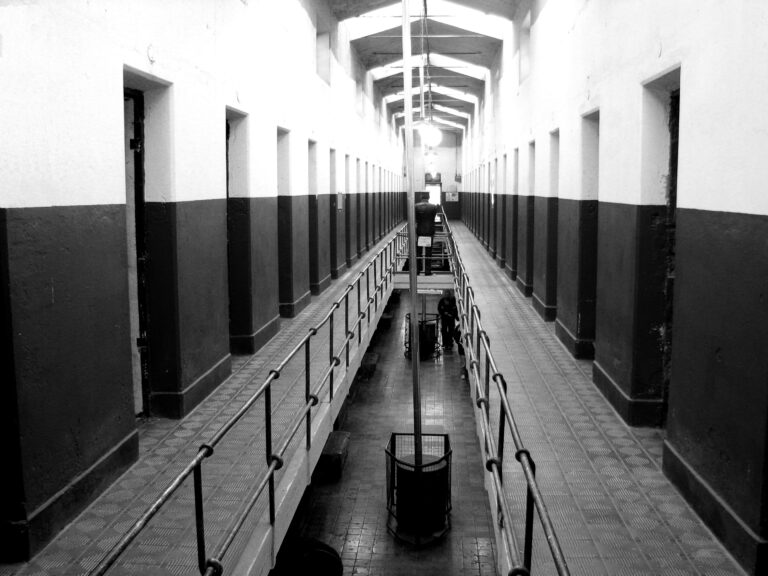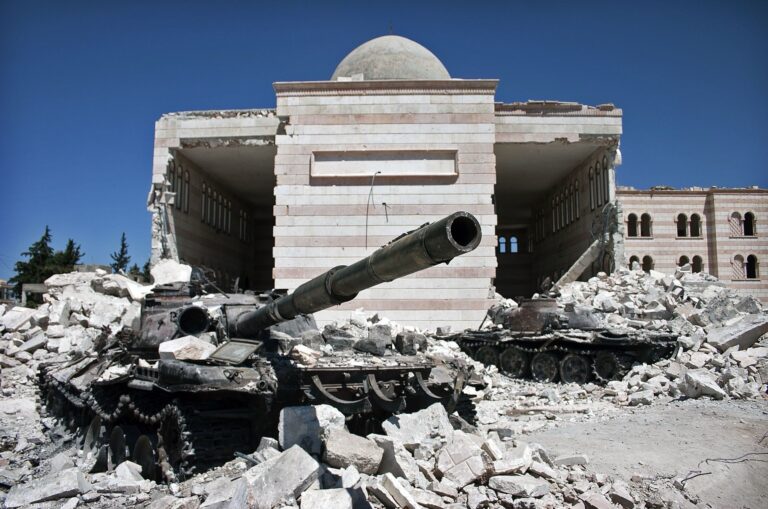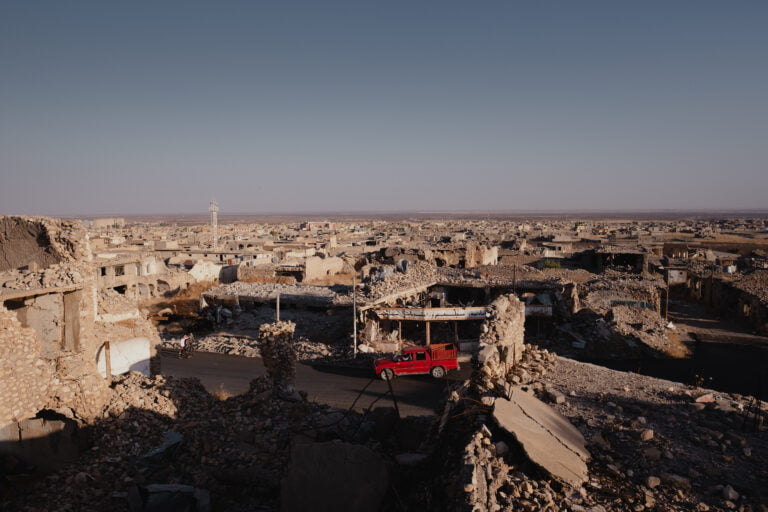This year in August it will be 10 years since the IS attacked Sinjar, committed heinous crimes, and forced several hundred thousand Ezidis to leave their ancestral land. To this day it’s reported that between 100 000 to 200 000 Ezidis live in IDP camps across the Middle East. The Iraqi Council of Representatives has adopted the Yezidi Survivors Law (YSL) which was aimed to bring justice to Ezidis but also Turkmen, Christians and Shabaks. Yet, to this day, no Iraqi court has sentenced anyone for committing genocide against the Ezidi people. Despite this, there are hopes among the Ezidi people, living in IDP camps, to return home to Sinjar.

On Monday, a contingent of 79 displaced Ezidi families departed from Kabartu camp in Duhok and traveled back to their ancestral lands in Shingal and nearby districts and villages. The International Organization for Migration (IOM) reports that approximately 80% of Shingal’s public infrastructure and 70% of civilian homes were demolished between 2014 and 2017 during the ISIS conflict. Essential services such as electricity and water remain unreliable, and many health and education facilities await reconstruction following their destruction in the war. The 79 Ezidis returned through the voluntary return program initiated by the IOM. This program has facilitated the return of 420 families to Shingal in both 2022 and 2023.
The ultimate goal of the States in the Middle East, specifically Iraq and Syria, should be that the indigenous peoples like Ezidis should be ensured a safe return to their home – without having to fear new threats by IS or other extremists. Just last week, Ezidi Times was alerted about the Ezidi tombs being vandalized in Syria. Yet, people expect the Ezidis to return to their homes and lands without fearing for their safety and for the recurrence of the 2014 events.
Even if there might not be a large-scale attack similar to the one in 2014, the people in Syria and Iraq still show hatred and intolerance towards the Ezidi people. This is the testimony of the intolerance of the Muslim populations in the Middle East. Although not everyone shares the ideology of IS, the Muslim population constitutes a majority in the Middle East and it is therefore the duty of all Muslims to make sure that minorities,which have inhabited the Middle East long before their existence, are ensured basic rights. Because can Syria and Iraq be considered fully functioning States if rebel groups are constantly disrupting their control over the territories and people?
The Yezidi Survivors Law (YSL) has been adopted in 2021 and the United Nations Investigative Team to Promote Accountability for Crimes Committed by Da’esh/Islamic State in Iraq and the Levant (UNITAD), in briefing on the sixth report of the Team (document S/2021/419), found clear evidence of genocide. Despite this and the fact that IS committed the most clearly documented genocide in human history by uploading videos of their crimes online, not one individual has been prosecuted for genocide and crimes against humanity in Iraq and Syria.
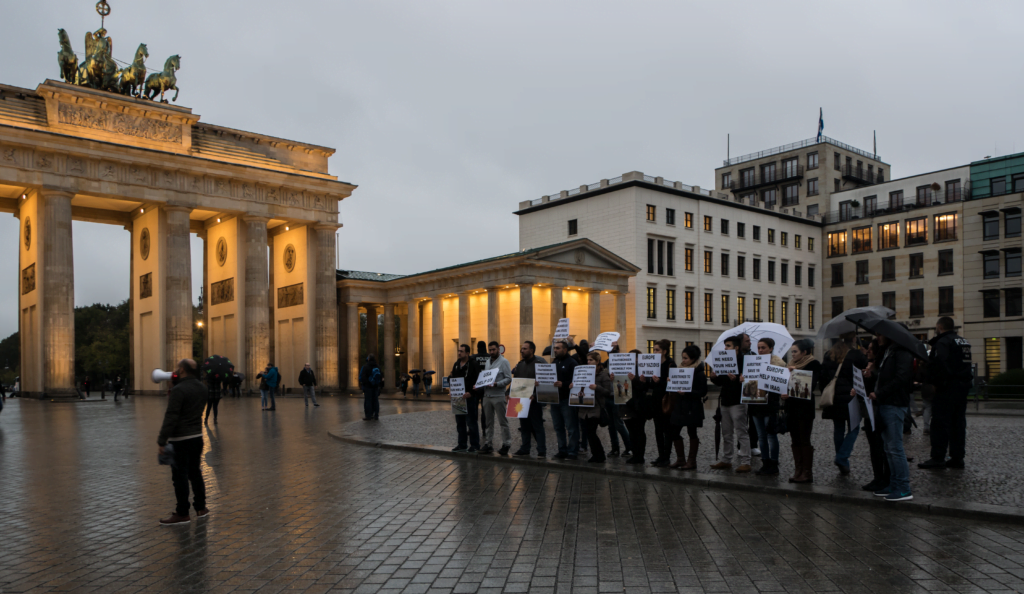
To add even more frustration, Germany has shocked the Ezidis by deporting them back to Iraq. Although the deportations have temporarily been halted, the situation remains unstable as Ezidi survivors from Sinjar, who have now lived in Germany for over a decade, are forced to return to the uncertain conditions in Iraq. If Germany, other European countries hosting Ezidis survivors and Iraq ensure the safety of the returning people, no Ezidi would actually decline to return to Sinjar. However, when people who have witnessed the murders of their family members are forced to return without guarantees to their own safety, the situation becomes worrying. What about the 1951 Refugee Convention(GRC), which lays down that no state “shall expel or return (‘refouler’) a refugee in any manner whatsoever to the frontiers of territories where his life or freedom would be threatened on account of his race, religion, nationality, membership of a particular social group or political opinion?[1]
The question is, therefore, who is going to ensure the safety of the Ezidis returning to Sinjar? Has Iraq even located 1 % of its budget to rebuild the ruined homes of the Ezidis? The Ezidis, although a minority, constitute a significant part of the Iraqi population. Despite this, they have had no property rights and no place in the Iraqi governmental plans. – Yes, the YSL has been adopted and steps have been taken to ensure that the Ezidis het their rightful property rights, but where are the results? Why are over 100 000 Ezidis still living in IDP camps? Only an insignificant number of people, 348 individuals according to the IOM, have been approved to receive reparations under the YSL.
Looking at situations from e.g. Darfur, Bangladesh, the Ottoman Empire and Australia where genocides have been committed, it is clear that when the issues remain “unresolved” so will the future peace. When perpetrators can commit the most inhuman acts and still walk freely both in the Middle East and also travel back to Europe, without the least amount of fear of prosecution; there is no guarantee that they won’t repeat what they did in 2014.
As the anniversary of the devastating IS attack on Sinjar approaches, the plight of the Ezidi people remains a stark reminder of the ongoing challenges faced by indigenous communities in conflict-ridden regions. Despite international attention and legislative measures such as the Yezidi Survivors Law, justice for the atrocities committed against the Ezidis has remained elusive. The recent incidents of vandalism and ongoing hostility towards the Ezidi people underscore the urgent need for concerted efforts to ensure their safety and facilitate their return to their ancestral lands. The failure to hold perpetrators accountable and provide adequate support for rebuilding efforts casts a shadow of uncertainty over the prospects for lasting peace and reconciliation in the region.

While the world reflects on past genocides and atrocities, it is crucial that concrete actions are taken to address the root causes of conflict, uphold human rights, and ensure the safety and dignity of all affected people, including the Ezidis. Only through collective commitment and unwavering determination can we hope to prevent history from repeating itself and ensure a path towards a more just and inclusive future for all.
[1] Jona Höni, Germany and the Yazidis – Going back on a Promise? Why International Law Obligates Germany to Stop Deportations of Yazidis to Iraq, Völkerrechtsblog, 05.02.2024?


